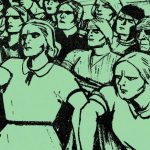Research project „Transnational sexual health activism and AIDS in Western Europe, 1980s-1990s“ (Web); Nikolaos Papadogiannis and Rachel Love (Univ. of St Andrews)
Time: 30.-31.08.2022
Venue: University of St Andrews
Proposals by: 15.02.2022
This conference aims to help promote research on the social, cultural, political, and financial implications of HIV/AIDS across the globe from a transnational and comparative perspective. While there has been substantial research on this topic, such literature tends so far to focus on national contexts within Western Europe and North America. In this vein, relevant scholarship has largely, although not entirely, neglected transnational connections, especially among activists and NGOs dealing with AIDS, prior to the late 1990s.
The organizers welcome proposals that take a transnational and comparative perspective. Proposed papers may explore different contexts across the globe since the 1980s, especially regions in the „periphery“ of Europe and beyond the „West“. Papers that attend to representational diversity in social class, gender, sexual orientation, age and „race“ are particularly welcome. Proposals may touch upon at least one of the following subjects and themes:
Subjects
- Civil society organisations and activists. The latter may include subjects who did not necessarily label themselves as „AIDS activists“ but still dealt with its social and political impact. Such subjects may include, but not be limited to, sex workers and/or LGBTQI individuals
- State institutions and policymakers
- Subjects dealing with health and healthcare, such as social workers, nurses, doctors, and discourses
- Migrant associations
- Religious subjects
- Communities of artists. Filmmakers
- Journalists, authors, publishers
Themes
- Discourses about the rights of people living with AIDS
- Shifting sexual norms and patterns. Read more and source … (Web)




